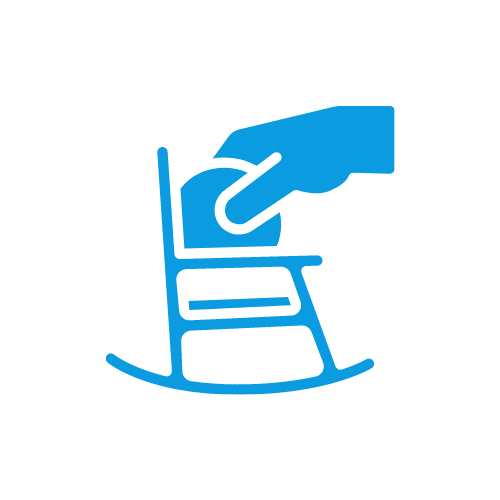What is a defined benefit pension?
A Defined Benefit Pension is a form of workplace pension that’s based on the number of years you worked for a particular employer, along with the salary you earned with them. The term “final salary” is also used to describe this type of pension.
Members can contribute to this pension scheme with their own money, but its value is not based on that contribution. Instead, it is the employer’s contribution that accounts the most. Therefore, your employer is responsible for making sure that your “final salary” pension fund is sufficiently funded with enough money so when you retire, it provides you with a pension income.
Users get to enjoy this type of pension for life, and it increases annually.
Even though defined benefit pensions are not that common anymore, that doesn’t mean you are not entitled to it. If you have worked in the public sector or a large employer, chances are you may have one.
![]()
The following factors determine the value of your defined benefit pension:
Pensionable service
The pension service consists of the number of years you’ve accumulated while being part of this pension scheme.
Pensionable earnings
Pensionable earnings are based on the value of your salary when you retire (‘final salary’) or may be calculated based on “career average”.
Accrual rate
This is the rate at which pension benefit is built up and is often expressed as a fraction of pensionable salary e.g. 1/60th or 1/80th of your final salary for each year of service.
Difference between defined contribution and defined benefit pensions
Employer-sponsored retirement plans are typically classified as defined contribution or defined benefit plans. The key factors that differentiate both plans are the way they pay out at retirement and how the money is accumulated overtime. A defined benefit pension will pay a guaranteed, secure income for life which is calculated by the scheme, whereas a defined contribution scheme builds up a “pot” of money which is subject to investment risk, and can be used to draw a regular income, take ad-hoc lump sums or purchase an annuity.
When you reach retirement age, you should look towards your employer as it is their responsibility to make sure that your defined benefit pension or retirement fund has enough money to pay you. In case the company where you’ve worked can’t meet its pension obligations, the Pension Protection Fund (PPF) will step up and make sure that you get your pension. However, know that your pension might be somewhat lower than what your employer promised you.
Moving a defined benefit or final salary pension
In case you opt to transfer your final salary pension, the trustees who run the pension scheme are the ones who will convert your pension into a transfer value.
This process is known as a cash-equivalent transfer value (CETV). You can transfer this into a defined contribution pension scheme with another employer, a personal pension, or a stakeholder pension.
- Personal or stakeholder pension.

- Pension scheme with another employer.

- Not all employer pension schemes, personal pensions or SIPPs accept transfers, so please check first.

Please note that Headway Wealth does not have the permissions to give Defined Benefit pension transfer advice. Any Defined Benefit pension transfer business will be completed on a dual advice model.
Withdrawing money from your defined benefit pension plan
Typically, you will start receiving your retirement income from your defined pension when you reach a certain age (i.e. 60 or 65). However, that doesn’t mean you can’t use some of the money accumulated into your pension fund.
Under the new rules, it is possible to withdraw 25% from the pension the day after reaching 55. It is a straightforward process if you have a defined contribution pension. However, things are not that easy for those with a final salary pension as there are many things to consider. Furthermore, when you manage to transfer some money from your final pension retirement fund, your pension provider will most likely make adjustments to your future retirement income. That means reduced retirement income once you retire. The reduction will be based on the amount you’ve taken from your pension fund.
Defined benefit pension transfer incentives
Some employers might tempt you to transfer your defined benefit pension scheme by offering certain financial incentives. At first look, the financial incentives might be quite appealing, but one needs to be careful because it is essential to look beyond the initial impression and fully evaluate all aspects. Below are a few examples of different pension transfer incentives along with things to consider for each.
- A cash payment incentive added to the transfer value. This option might sound good, but you might need to pay income tax on it again.
- Sometimes, you might be offered something known as “enhanced transfer value”. With this option, you might be asked to choose between cashing out the transfer incentive or fully transferring the enhanced transfer value. Those that accept this incentive usually end up with a lower pension income.
Other defined benefit pension transfer incentives
Incentives for switching scheme benefits are quite common these days. For example, people are told that they will get a higher flat-rate pension if they give up their increase beyond the statutory minimum.
This is known as pension increase conversion or pension increase exchange.
Need advice about your transfer incentive offers or defined benefit options ?

To transfer your defined benefit pension, you will need to obtain regulated financial advice first. The transfer is also contingent upon you having a cash equivalent transfer value of at least ₤30,000 or more. Trustees can’t make any pension scheme transfer to any value equivalent of over ₤30,000 without a regulated financial adviser’s signature.
A financial adviser will always consider the enhanced transfer value or the cash payment into account when weighing in on the benefits you may give up on.
It is considered a good practice when your employer puts you in touch with a regulated financial adviser at no charge. However, this is not always the case as some employers are neither that forthcoming nor are obligated by law to do so.
If you would like to discuss your defined benefit pension options, contact us and we can connect you to one of our financial advisers who can answer any questions you might have and help you with your pensions.
Book your free, no obligation consultation today so we can further assist you.
Headway Wealth does not have the permissions to give Defined Benefit pension transfer advice. Any Defined Benefit pension transfer business will be completed on a dual advice model.



